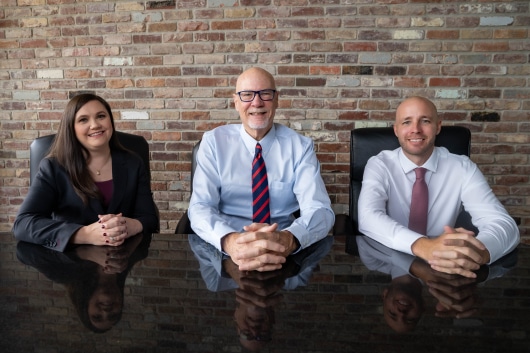What are the property owners’ liability in the State of Florida?
When you visit someone else’s property or a business, it’s reasonable to assume that you won’t get hurt. But when Florida property owners and managers fail to fulfill their duty to keep tenants, visitors, and customers safe, the likelihood that someone will be injured or killed increases greatly.
The Florida premises liability lawyers at Brooks Law Group can help you seek fair compensation if you’ve been injured due to a property owner’s carelessness. We assist Floridians in pursuing money for medical bills, lost wages, and other expenses after suffering injuries through no fault of their own. Learn more about how we can help you with your case by contacting our office for a free initial consultation.
Property Owner Responsibilities in Florida
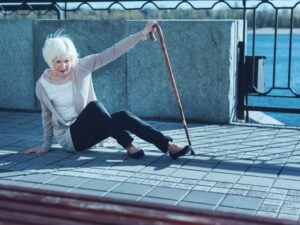 While property owners are responsible to anyone visiting their property, the degree of responsibility varies based on the relationship between the visitor and owner and the nature of the visit. Here’s a breakdown:
While property owners are responsible to anyone visiting their property, the degree of responsibility varies based on the relationship between the visitor and owner and the nature of the visit. Here’s a breakdown:
- Invitees: An invitee is a person who has been invited onto a property for a specific business purpose and has explicit permission to visit from the property owner. Invitees are owed the highest duty of care, and the law requires the owner to watch actively for potential hazards. If they identify any hazards, the property owner must fix or warn the invitee of them. Owners might be liable for injuries caused by dangerous conditions that they fail to remove. This includes unknown hazards that the owner could reasonably be expected to identify.
- Licensees: A licensee is anyone who is on someone else’s property with the owner’s permission, but not for a business reason. Property owners owe a duty of care toward licensees, but the required care is not as high as for invitees. Property owners can be held liable for a licensee’s injuries caused by a known hazard, but not for conditions they didn’t know about.
- Trespassers: Those on someone else’s property without permission are trespassing. Because trespassers occupy the premises illegally, property owners owe them only a minimal duty of care. Property owners can be held liable for a trespasser’s injuries only if the owner intentionally or willfully caused the injuries.
Common Types of Premises Liability Accidents
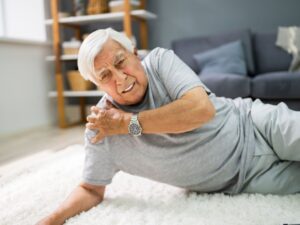 Some of the most common types of premises liability accidents include:
Some of the most common types of premises liability accidents include:
- Slip and fall
- Trip and fall
- Swimming pool accidents
- Parking lot accidents
- Dog bites and other animal attacks
- Elevator and escalator cases
- Negligent or inadequate security
- Amusement park accidents
Who Can Be Held Liable?
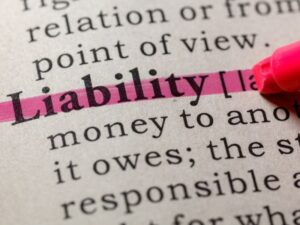 Identifying who can be held liable for premises liability accidents depends on where the accident occurred and its circumstances. Generally speaking, property owners must maintain the common areas of a property, such as sidewalks, other walkways, and staircases.
Identifying who can be held liable for premises liability accidents depends on where the accident occurred and its circumstances. Generally speaking, property owners must maintain the common areas of a property, such as sidewalks, other walkways, and staircases.
If a hazard injures someone in one of these common areas, they might have a case for negligence against the property owner. However, if they were injured in someone’s private home, such as an apartment within a larger complex, the property owner would likely not be liable for those injuries. Instead, the injured party might be able to seek compensation from the tenant and their renter’s insurer.
What Is Reasonable Conduct?
 Property owners must exercise “reasonable care” to prevent people from being injured on their premises, but what exactly does that mean?
Property owners must exercise “reasonable care” to prevent people from being injured on their premises, but what exactly does that mean?
When an insurance company or jury weighs the facts to determine if a property owner is liable for someone’s injuries, they’ll consider several factors, including:
- Type of property (e.g., home, apartment complex, business, etc.)
- Location of the property
- The likelihood that someone else would enter the property the same way that the injured party did
- The chances that the hazard on the property would harm someone
- Whether the property owner knew or should have known about the hazard
- How reasonable it is to protect visitors from the hazard’s danger
What Happens in a Premises Liability Investigation?
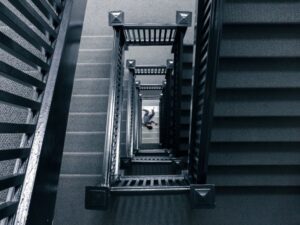 If you were injured on someone else’s property and are seeking compensation for your injuries, an investigation can determine who should be held liable.
If you were injured on someone else’s property and are seeking compensation for your injuries, an investigation can determine who should be held liable.
First, your Florida premises liability attorney will determine how you were injured. Your claim will need to document the specific hazard or dangerous condition, such as a broken stair rail or poor lighting, that caused your injuries. You’ll also need evidence that shows the property owner either knew or could have known about the hazard.
Next, the claim must establish how you entered the property and the relationship between you and the property owner. For example, a trespasser will have a more difficult time claiming compensation than a business customer.
Finally, you and your lawyer will need to substantiate the full extent of your injuries and other losses. To show that the owner was liable for your injuries, Florida law requires proof of all of your losses. Medical bills, accident reports, pay stubs, witness accounts, and additional evidence will support your demand for compensation.
Common Defenses from Property Owners
Don’t assume that your case is straightforward. Some common strategies that property owners use to shield themselves from liability include:
- The property owner didn’t know about the hazard. Property owners may argue that they aren’t liable for your injuries because they didn’t know about the danger.
- The hazard was obvious. Visitors must also take reasonable care to protect themselves from injury on another’s property. If the hazard was in plain sight, the property owner could successfully deny liability for the accident.
- You are partially at fault. Depending on the facts of the case, the property owner may not be able to escape at least some responsibility for the accident. However, they may try to reduce the amount they have to pay by shifting some of the blame onto you.

